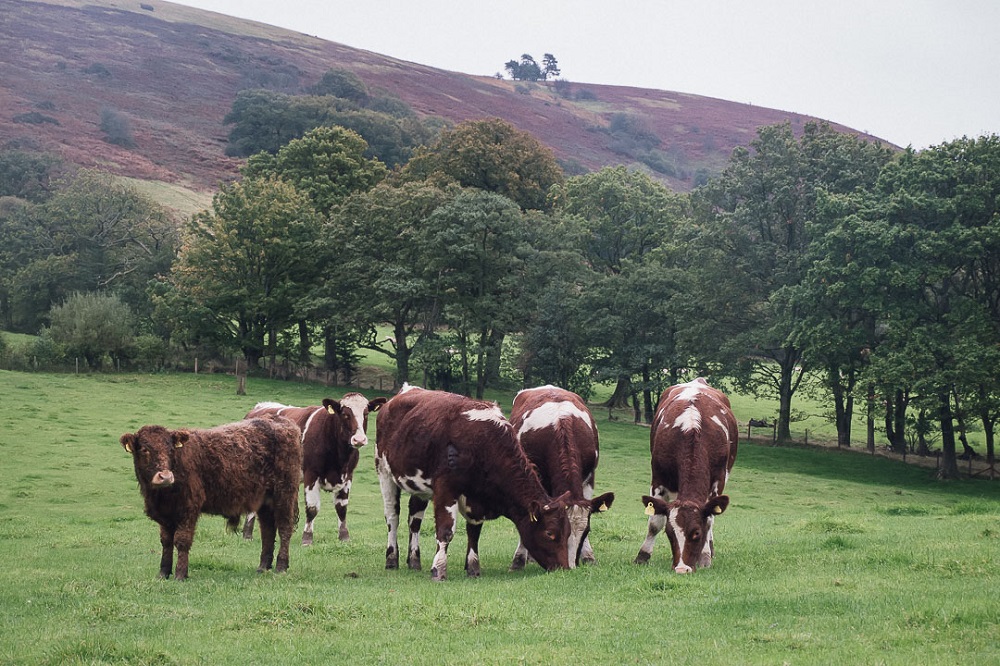Farms in Wales could boost profitability by over 40% by adopting nature-friendly approaches – report

A new report suggest farms in Wales could boost profitability by over 40% by adopting nature-friendly approaches which balance food production with the natural environment.
The report published by the Nature Friendly Farming Network Cymru (NFFN) presents evidence of an average increase in farm profitability of 42% when farms actively work with the natural environment to manage production sustainably.
NFFN says its research, based on Evidence from over 50 farms in the UK, including 10 in Wales, shows such an approach can simultaneously restore nature, cut input costs and boost profit margins.
The report calls for long-term funding, ambitious change in policy and sufficient reward for Welsh farmers to enable them to transition to sustainable farming methods which restore ecosystem health and mitigate climate change.
It claims previous farming subsidies under the EU Common Agricultural Policy, designed to increase productivity after the Second World War, have largely contributed to farm inefficiencies, biodiversity loss, soil erosion and land degradation.
The rising costs of environmental damage, such as declining soil health, are absorbed by farm businesses resulting in dependency on expensive artificial inputs to substitute the landscape’s natural fertility. After the war in Ukraine pushed up prices and disrupted supply, rising chemical fertiliser prices added an estimated £160 million to farming’s bottom line.
The report argues that increasing inputs doesn’t guarantee higher rates of profit if the natural environment is damaged or pushed beyond its natural capacity.
Public money
In 2020-21, the average farm income in Wales was £34,300 – the lowest in the UK – two-thirds of which came from public money.
In Wales, feed costs are the largest contributor to farm expenses, accounting for 35% of all inputs, followed by pesticides, fuel and artificial fertilisers.
The research highlights a framework, coined the Maximum Sustainable Output (MSO), that reduces input reliance by adopting a range of regenerative farming techniques to enhance soil health and restore biodiversity. Taken together, these measures represent a potentially significant reduction in input costs for farmers with beneficial returns for the environment.
The new Nature Means Business report has been published just weeks before the Welsh Government’s Stage 3 debate of the Agriculture Bill, which aims to support the resilience of agricultural businesses by encouraging environmentally sustainable food production.
NFFN Cymru says it remains supportive of the Bill but cautions that it must go to great lengths to address the climate and nature crises by moving at pace to phase out the Common Agriculture Policy and replace it with policies that encourage and reward nature-friendly practices.
Healthy soil
Hywel Morgan, NFFN Cymru Chair, and farmer at the Bannau Brycheiniog National Park said: “Many farmers know that healthy soils and a thriving natural environment are good for business; they help create resilient, reliable and productive farms.
“The value of nature in farm profitability cannot be overlooked. But we need the Welsh Government to uphold this vision for agriculture in the upcoming Agriculture Bill and Sustainable Farming Scheme, so we make this way of farming the norm.”
NFFN Cymru Sustainable Farming Lead, Rhys Evans, added: “The Agriculture Bill is the last chance we have in Wales to create a framework for supporting farmers in tackling the biggest challenges our nation faces.
“The nature and climate emergencies are at a point where merely protecting our existing resources is not enough – we must take action to actively enhance our environment.
“Regenerative farming aims to do this, beginning by improving our soils. We need fair rewards and incentives for the whole of the sector to transition to nature-friendly farming practices that restore and protect our natural environment while sustainably producing high-quality food.”
Support our Nation today
For the price of a cup of coffee a month you can help us create an independent, not-for-profit, national news service for the people of Wales, by the people of Wales.







When will these reports start pointing the finger at supermarkets, they’re the ones that are driving farm prices down while increasing shelf prices and making a massive profit, Farmer’s aren’t given a choice, the industry is being forced down the intensive production route it’s about time farmers got a fair price for the work they put in to producing food. It’s all too easy to keep blaming “the farmer” the two worst things that happened to UK farming were the EU and supermarkets.